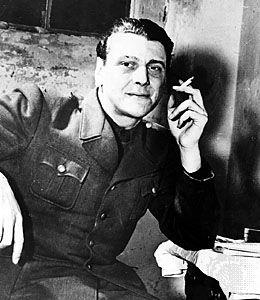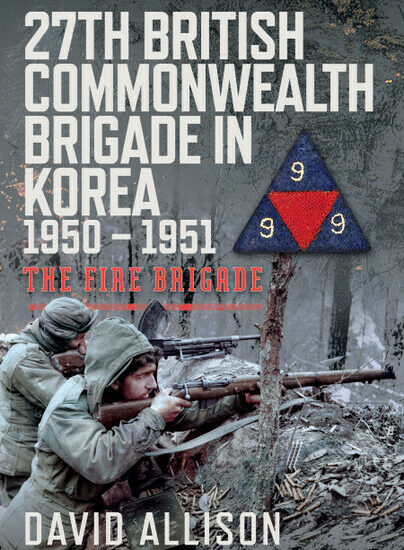The Secret War Between Hitler and Stalin
Author guest post from Norman Ridley.
Soviet maskirovka (deception); Operation Berezino
On 18 August 1944, a radio message was received at German intelligence headquarters in Berlin addressed to ‘Saturn’.
In a place called Berezino west of Mogilev, a large German unit, a regiment or more, is hiding in the forests. Alexander [Demyanov] talked to a captured Ober-Efreyatore of this unit, who informed him that the group intended to break through to the west, but because of the large number of wounded and lack of weapons ammunition and food and further advancement is impossible.
Berlin replied a week later,
Saturn to Alexander. We ask Alexander to contact this unit. We intend to drop various cargoes for them and could send a radio operator. To do this we must know the exact location of the part, the password will be Hanover.
It was an elaborate trap laid by the Soviets, however, and one authorised at the highest level. Stalin had ordered an expansion of Operation Monastery in an attempt to make the Germans believe that a large number of their soldiers were still active behind Soviet lines. German Army Group Centre had been overwhelmed and overrun with large numbers of Wehrmacht troops lost presumed killed or captured. If the Germans could be convinced that they still had substantial operationally viable forces in the Soviet rear they might well be persuaded to divert scarce resources to supporting them.
Two NKVD officers, Mikhail Maklyarsky and Victor Ilyin, tasked with making a detailed plan for Operation Berzino, as it was called, based it on Operation Monastery with ‘radio games’ at its heart. The man chosen to put the plans into operation was Lieutenant General Pavol Sudoplatov. The essential feature was described by Stalin as a methodical physical destruction of German special forces and their intelligence capability by persuading the Germans to send in agents on rescue missions and lead them into traps.
Lieutenant Colonel Heinrich Gerhard Scherhorn’s 36th Security Regiment of the 286th Security Division had been destroyed and he was captured by the Soviets on 9 July 1944 near Minsk. He had been one of a group of 1,800 Germans surrounded near the Berezino river. The Germans were aware that such a group had been isolated in that region and had some intelligence to suggest that it was still holding out. Soviet counterintelligence knew about this situation from radio intercepts and started passing misinformation through the Prestol network to create a fiction. The besieged Germans were determined to make it back to their own lines, the story went, but they were running short of ammunition and had many wounded who required immediate medical aid. What the Germans did not know, and did not find out, was that all but 200 had been killed and the rest, including Scherhorn, taken captive.

Scherhorn had been selected because the plan required a leader of sufficiently high rank who actually existed and whose ability to rally people around himself and lead them along the enemy’s rear for a long time would not be doubted. He would also be someone who could be coerced into participating in the deception. Sudoplatov searched PoW camps for a suitable candidate and found Scherhorn who had commanded a rearguard regiment, but was now a broken man convinced that Germany would be defeated. He agreed to cooperate and was given the codename ‘Shubin’. A group of sixteen men under the command of Major G.B. Borisov flew to Glukhoe near Minsk to act as bait.
Colonel Worgitzky, Chief of Intelligence for Army Group Centre, after much deliberation decided that there was a high probability that the information was reliable and that steps should be taken to relieve Scherhorn’s group by dropping supplies and sending in radio operators to establish communications. The man chosen to make contact with Scherhorn’s fictitious force was Otto Skorzeny who described what happened in his memoirs. A plan, codename Freischütz (magic shooter), had four groups, each of five men, with wireless transmitting set, parachute rations for four weeks, tents, etc., and Russian machine pistols, all disguised as Red Army soldiers. Meticulous preparations included the men being given the vile Russian machorka cigarettes and having their heads shaved. Some would be dropped near Borisov and Cervenj, east of Minsk, while others were to be dropped near Djerzinsk and Viteika and make a concentric approach to Minsk.
On the night of 15 September 1944, three German radio operators landed at specified coordinates, but were quickly captured and coerced into taking part in the ‘radio games’ by sending back false information. On 27 October, two more parachutists, one doctor Jeschki and Harry Vivor followed, but, like the previous men, they were immediately taken captive. When, under Soviet control, they reported back, the correct password was given and also the secret codeword indicating that the speaker was not being held by the Soviets. Scherhorn, himself, was forced to take part in the subterfuge by speaking a few words personally. The group now numbered some 2,500 men, Scherhorn said, with several hundred wounded.

Despite regular communications with Scherhorn’s men, Army Group Centre was still not entirely convinced, but could not risk abandoning forces that appeared to be a thorn in the Soviet flesh. Radio messages continued pleading for help. They continued to drop supplies, men and equipment at designated site and even sent an engineer to scout for a suitable landing zone so that evacuation of wounded could begin, but Scherhorn was becoming ever more distant from a constantly retreating German army and fuel was in desperately short supply. Skorzeny was no fool and suspected foul play so he sent other agents not connected to Freischütz to try and verify the existence of Scherhorn’s group. Unfortunately for him, all eight men were caught and forced to become part of the subterfuge.
All this time, Scerhorn was reporting that his men were moving westward engaged the rear units of the Red Army, conducted sabotage, taking prisoners and collected intelligence. All this was reinforced by an intricate web of other misinformation, such as newspaper reports and fake agent messages.
On 23 March, Hitler announced that members of Scherhorn’s officer corps, who were actually far from Berezino in Soviet captivity, were to be promoted. Scherhorn himself was awarded the Knight’s Cross and promoted to colonel. It was Hitler’s way of abandoning the men because very soon afterwards all contact was broken off.
Between September 1944 and May 1945, the Germans flew thirty-nine missions in support of Scherhorn and lost a total of twenty-two agents. Besides that they dropped several tons of cargoes with medicines and warm clothes along with 2,258,330 roubles. On 1 May, a final message went out to Scherhorn from Berlin, that would have drawn wry smiles from the Soviet listeners.
The air fleet equipment ready for shipment cannot be delivered. It is with a heavy heart that we are forced to discontinue our assistance to you. Based on the current situation, we can no longer maintain radio contact with you. No matter what the future brings, our thoughts will always be with you, who at this difficult time have been forced to give up their hopes.

Order your copy here.

